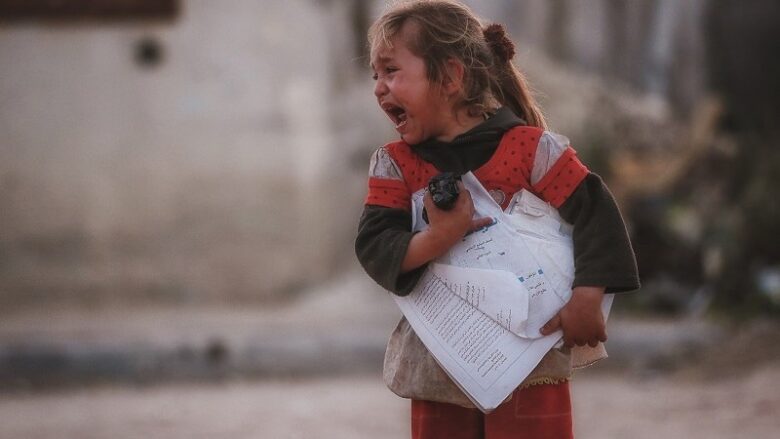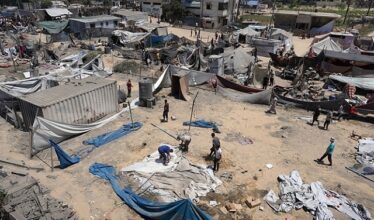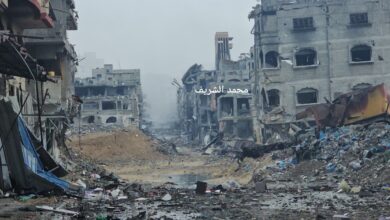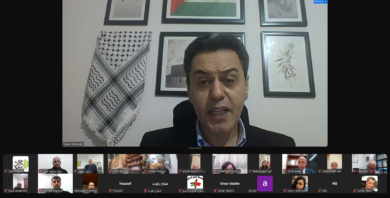
Based on the initiative of the International Commission (ICSPR), dozens of representatives of political forces and civil society organizations launch an urgent national appeal
Date: December 22, 2024
National Call
Based on the initiative of the International Commission (ICSPR), dozens of representatives of political forces and civil society organizations launch an urgent national appeal.
Based on the initiative of the International Commission to Support Palestinian Rights (ICSPR), a dialogue forum was held titled “The Reality and Future of Gaza Amid the Genocidal War, Ongoing Division, and Regional and International Developments.” Dozens of representatives of political forces, civil society organizations, community and popular figures, tribal leaders, as well as dozens of Palestinian and Arab academics, researchers, and friends of the Palestinian people participated. The forum’s outcomes were summarized in this appeal:
To encourage all national, Arab, and international efforts and take urgent measures to stop the genocidal war and Israeli aggression on Gaza and the rest of the occupied Palestinian territories, ensure the flow of humanitarian aid, and enhance relief and development responses to address the humanitarian catastrophe the sector and its residents are suffering due to occupation policies based on killing, siege, forced displacement, starvation, and systematic destruction. Participants emphasized the need to expedite national consensus on a plan to manage the transitional phase, protect national interests in light of regional and international developments, and elevate leadership to the level of sacrifices and challenges.
The continued failure of national efforts to form a government of national competencies or implement the outcomes of Beijing and Moscow, and the lack of response to Egyptian and Arab initiatives aimed at ending political division and achieving national unity, is considered a deepening of institutional fragmentation, the absence of partnership and democratic legitimacy, and a weakening of the political system’s role in confronting national risks and Israeli aggression, which exploits this division to entrench its colonial policies and deepen violations, genocide, settlement, colonial annexation, and Judaization of Jerusalem, as well as racial discrimination against Palestinians in Gaza, the West Bank, Jerusalem, and the 1948 territories.
Participants called for the urgent convening of a comprehensive national meeting involving political, social, and popular forces from various Palestinian communities, with the goal of unifying visions and ranks, activating all efforts to confront Israeli aggression, and enhancing the resilience of the Palestinian people.
They stressed the importance of prioritizing national interests and rising to the level of humanitarian and national challenges imposed by the genocidal war and ongoing Israeli aggression and its declared colonial and racist plans, ensuring the launch of a joint national vision and practical plan for the transitional phase that responds to the requirements of managing the current stage amid regional and international developments; preserving the Palestinian cause as a unifying issue, utilizing opportunities in its favor, and enabling Palestinians to invest sacrifices and international solidarity movements to advance the national cause.
The vision is based on the following:
- Ending Aggression and Genocide: The need to work seriously to stop Israeli aggression and the genocidal war on Gaza, rejecting any attempts to subjugate Gaza to Israeli control. Agreement on a comprehensive national plan, including forming a transitional national government to manage the current phase in the West Bank and Gaza. This is the best option. After condemning the failure to achieve this, participants called for minimum consensus to form a council or service body under any name and within the administrative and legal frameworks of the Palestinian Authority, with full powers to work on saving Gaza and supporting its residents from the first day after the war ends, focusing on relief and the return of displaced persons, opening crossings, releasing Palestinian prisoners, ensuring relief and humanitarian response, enhancing resilience, and recovery of service sectors, supervising reconstruction through Palestinian, Arab, and international partnerships by forming a Relief and Reconstruction Council to ensure financial sustainability, technical support, transparency, and justice. Additionally, the establishment of a national fund to support humanitarian response by Palestinian communities and mobilizing Arab and international support to meet urgent humanitarian needs.
- Enhancing International Diplomacy: Mobilizing Arab and international positions to support a comprehensive, final, and sustainable ceasefire, rejecting and confronting displacement, annexation, and other occupation crimes. Serious efforts to internationalize the conflict and activate Palestinian, Arab, and international diplomacy to ensure the occupation is held accountable for its crimes before international courts, protecting UNRWA due to its humanitarian, political, and legal significance linked to the Palestinian refugee issue and their right of return, providing necessary financial support to enable it to fulfill its mandate, condemning all occupation practices restricting the agency’s work, and pushing for the implementation of international resolutions through events and pressure on governments to fulfill their moral and legal duties. This includes providing support for the success of the international conference under the UN to resolve the Palestinian issue in accordance with international legitimacy resolutions, including approving a movement constitution to embody the Palestinian state.
- Responding to Reconciliation Efforts: The need for Palestinian parties to respond to national, Egyptian, Arab, and international efforts to achieve national consensus, adopt a collective vision that ensures confronting aggression and Israeli occupation crimes and plans, strengthening Palestinian resilience, especially in Gaza, reconstruction, and convening the PLO’s temporary leadership framework to strengthen its role as the sole legitimate representative of the Palestinian people, until national reconciliation is achieved and comprehensive elections are held to rebuild all political system institutions based on democracy and national partnership.
- Affirming Collective Responsibility: National institutions, unions, and community figures must assume their responsibilities to protect Palestinian rights and confront current challenges, including establishing a popular fund in all Palestinian communities to support Gaza, warning of the serious repercussions of continued division and national and community weakness in the absence of Palestinian consensus, which undermines national resilience, civil peace, and the Palestinian people’s ability to confront the occupation and its colonial plans.
- Participants decided to issue this appeal and continue efforts to shape a comprehensive national vision and form a follow-up committee to exert pressure and gather national, Arab, and international efforts to achieve what is stated in the appeal.
Glory to the martyrs, healing to the wounded, freedom to the prisoners, and peace and greetings to our people in Palestine, especially Gaza.





